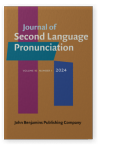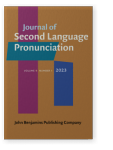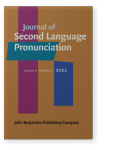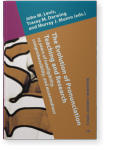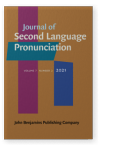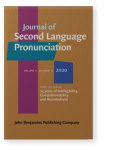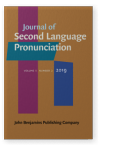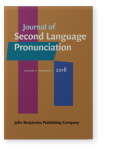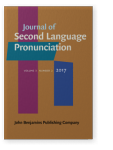Charlie Nagle
List of John Benjamins publications for which Charlie Nagle plays a role.
Journal
2023 Teaching perspectives: Spanish Journal of Second Language Pronunciation 9:1, pp. 151–160 | Review article
2023 Reconceptualizing the (book) review Journal of Second Language Pronunciation 9:1, pp. 130–133 | Introduction
2022 Rethinking pronunciation posttesting Journal of Second Language Pronunciation 8:2, pp. 161–167 | Article
Pronunciation training studies shed light on the training paradigms and features that are most likely to promote learning and lead to optimal instructional outcomes. Yet, delayed posttesting is surprisingly rare in experimental work. As such, although several research syntheses have shown that… read more
2022 Expanding the scope of L2 intelligibility research: Intelligibility, comprehensibility, and accentedness in L2 Spanish The Evolution of Pronunciation Teaching and Research: 25 years of intelligibility, comprehensibility, and accentedness, Levis, John M., Tracey M. Derwing and Murray J. Munro (eds.), pp. 51–73 | Chapter
This study investigated relationships among intelligibility, comprehensibility, and accentedness in the speech of L2 learners of Spanish who completed a prompted response speaking task. Thirty native Spanish listeners from Spain were recruited through Amazon Mechanical Turk to transcribe and… read more
2022 Second language comprehensibility as a dynamic construct The Evolution of Pronunciation Teaching and Research: 25 years of intelligibility, comprehensibility, and accentedness, Levis, John M., Tracey M. Derwing and Murray J. Munro (eds.), pp. 153–179 | Chapter
This study examined longitudinal changes in second language (L2) interlocutors’ mutual comprehensibility ratings (perceived ease of understanding speech), targeting comprehensibility as a dynamic, time-varying, interaction-centered construct. In a repeated-measures, within-participants design,… read more
2021 Assessing the state of the art in longitudinal L2 pronunciation research: Trends and future directions Journal of Second Language Pronunciation 7:2, pp. 154–182 | Article
Longitudinal research methods often call to mind studies of various lengths. However, longitudinal research involves complex decisions related to study length, number of sessions, and session spacing, and these longitudinal choices must be coordinated with other aspects of research methodology.… read more
2020 Expanding the scope of L2 intelligibility research: Intelligibility, comprehensibility, and accentedness in L2 Spanish 25 years of Intelligibility, Comprehensibility and Accentedness, Levis, John M., Tracey M. Derwing and Murray J. Munro (eds.), pp. 329–351 | Article
This study investigated relationships among intelligibility, comprehensibility, and accentedness in the speech of L2 learners of Spanish who completed a prompted response speaking task. Thirty native Spanish listeners from Spain were recruited through Amazon Mechanical Turk to transcribe and rate… read more
2020 Second language comprehensibility as a dynamic construct 25 years of Intelligibility, Comprehensibility and Accentedness, Levis, John M., Tracey M. Derwing and Murray J. Munro (eds.), pp. 430–457 | Article
This study examined longitudinal changes in second language (L2) interlocutors’ mutual comprehensibility ratings (perceived ease of understanding speech), targeting comprehensibility as a dynamic, time-varying, inter action-centered construct. In a repeated-measures, within-participants design,… read more
2019 Developing and validating a methodology for crowdsourcing L2 speech ratings in Amazon Mechanical Turk Journal of Second Language Pronunciation 5:2, pp. 294–323 | Article
Researchers have increasingly turned to Amazon Mechanical Turk (AMT) to crowdsource speech data, predominantly in English. Although AMT and similar platforms are well positioned to enhance the state of the art in L2 research, it is unclear if crowdsourced L2 speech ratings are reliable,… read more
2017 Individual developmental trajectories in the L2 acquisition of Spanish spirantization Journal of Second Language Pronunciation 3:2, pp. 218–241 | Article
In Spanish, voiced stops weaken to approximants and display variables degrees of lenition according to the context in which the stop occurs, making them a complex pronunciation feature. Accumulated findings from cross-sectional research on second language (L2) speakers suggests that many L2… read more
